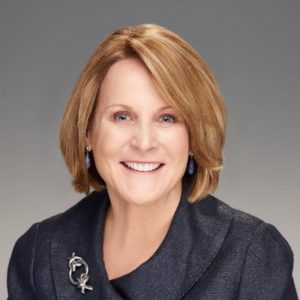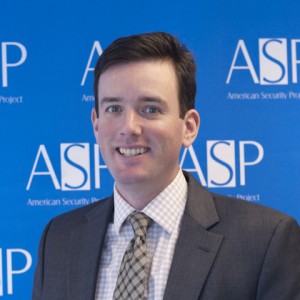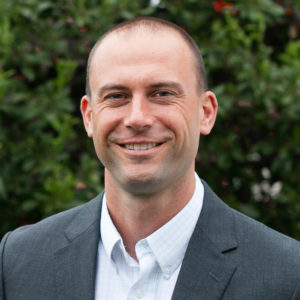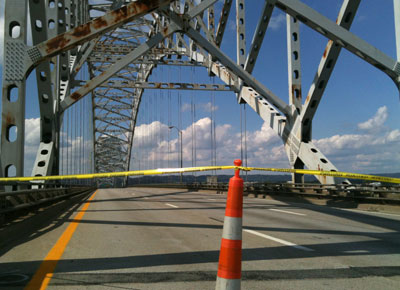America’s infrastructure priorities have far-reaching implications for national security – both within and outside the United States. Investments in the national grid, renewable energy, electric vehicles, carbon capture, and technological development, among other opportunities, have the potential to improve American competitiveness abroad while increasing resiliency and mitigation at home. Infrastructure legislation will play an outsized role in America’s climate security moving forward.
Join Council of Foreign Relations David M. Rubenstein Senior Fellow for Energy and the Environment Alice Hill, Atlantic Council Deputy Director for Climate and Advanced Energy Maggie Jackson, and Fusion Industry Association CEO Andrew Holland to discuss what an infrastructure bill means for the future of climate security at home and abroad. The conversation will be moderated by ASP Senior Climate Security Fellow David Haines. Click here to register.
For additional information, view our recent article on the importance of infrastructure for the US’ competitiveness.
About the Speakers
Alice Hill

Alice Hill is the David M. Rubenstein senior fellow for energy and the environment at the Council on Foreign Relations. Her work at CFR focuses on the risks, consequences, and responses associated with climate change. Hill previously served as special assistant to President Barack Obama and senior director for resilience policy on the National Security Council staff where she led the development of national policy to build resilience to catastrophic risks, including climate change and biological threats. Her coauthored book, Building a Resilient Tomorrow, was published in 2019. In 2020, Yale University and the Op-Ed Project awarded her the Public Voices Fellowship on the Climate Crisis. Hill’s new book, The Fight For Climate After COVID-19, will be published in summer 2021.
Margaret Jackson
 Margaret Jackson is the deputy director for climate and advanced energy in the Atlantic Council’s Global Energy Center. From 2019 to 2020, Maggie was a Council on Foreign Relations-Hitachi International Affairs fellow at the Institute of Economics, Japan, where she researched US-Japan energy security cooperation. Prior to working in Tokyo, she was a Fulbright scholar at the Institute of Energy, Environment, and Economy at Tsinghua University in Beijing, studying implications for Chinese overseas renewable energy investment. Maggie is also a former US Navy Surface Warfare Officer and served in Japan and on multiple deployments to the Western Pacific. During her time in Washington, DC, she briefed senior leaders on US-China affairs and worked in operations and plans related to East Asia under the Chief of Naval Operations. Early in her career, she interned under the US Military Representative at the North Atlantic Treaty Organization (NATO).
Margaret Jackson is the deputy director for climate and advanced energy in the Atlantic Council’s Global Energy Center. From 2019 to 2020, Maggie was a Council on Foreign Relations-Hitachi International Affairs fellow at the Institute of Economics, Japan, where she researched US-Japan energy security cooperation. Prior to working in Tokyo, she was a Fulbright scholar at the Institute of Energy, Environment, and Economy at Tsinghua University in Beijing, studying implications for Chinese overseas renewable energy investment. Maggie is also a former US Navy Surface Warfare Officer and served in Japan and on multiple deployments to the Western Pacific. During her time in Washington, DC, she briefed senior leaders on US-China affairs and worked in operations and plans related to East Asia under the Chief of Naval Operations. Early in her career, she interned under the US Military Representative at the North Atlantic Treaty Organization (NATO).
Andrew Holland
 Andrew Holland is the Chief Executive Officer of the Fusion Industry Association. Located in Washington, DC, Holland has worked at the intersections of science, energy, policy, and politics for two decades. He’s the author of the “Fusion Power – A 10 Year Plan for American Energy Security,” first published in 2013, laying out a roadmap for American leadership in fusion. Previously, Andrew served as the Chief Operating Officer for the American Security Project, researching energy, climate change, trade, innovation, and infrastructure policy. For more than 15 years, he has worked at the center of debates about how to achieve sustainable energy security and how to effectively address climate change.
Andrew Holland is the Chief Executive Officer of the Fusion Industry Association. Located in Washington, DC, Holland has worked at the intersections of science, energy, policy, and politics for two decades. He’s the author of the “Fusion Power – A 10 Year Plan for American Energy Security,” first published in 2013, laying out a roadmap for American leadership in fusion. Previously, Andrew served as the Chief Operating Officer for the American Security Project, researching energy, climate change, trade, innovation, and infrastructure policy. For more than 15 years, he has worked at the center of debates about how to achieve sustainable energy security and how to effectively address climate change.
David Haines – Moderator
 David Haines is a Senior Fellow for Climate Security at the American Security Project. His research examines the national security implications of climate change. From 2006-2020 he was an officer and aviator in the United States Marine Corps. He completed his active-duty service at the United States Naval Academy, where he served as the Associate Chair for the Political Science Department and taught both American Government and the Politics of Irregular Warfare.
David Haines is a Senior Fellow for Climate Security at the American Security Project. His research examines the national security implications of climate change. From 2006-2020 he was an officer and aviator in the United States Marine Corps. He completed his active-duty service at the United States Naval Academy, where he served as the Associate Chair for the Political Science Department and taught both American Government and the Politics of Irregular Warfare.
Previously he was stationed in San Diego as an MV-22B Osprey pilot and in Okinawa, Japan as a CH-46E pilot. He has deployed multiple times to the Middle East and in Southeast Asia.







